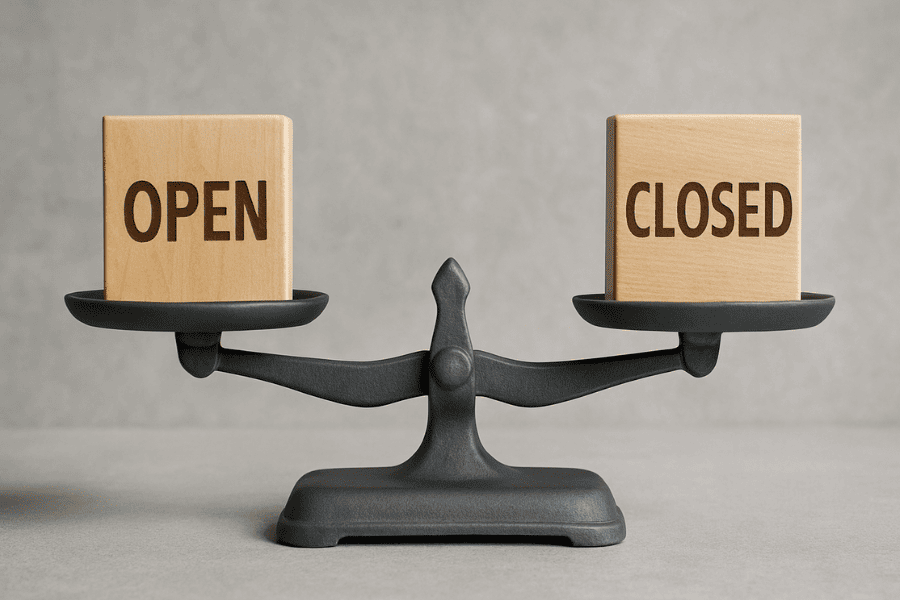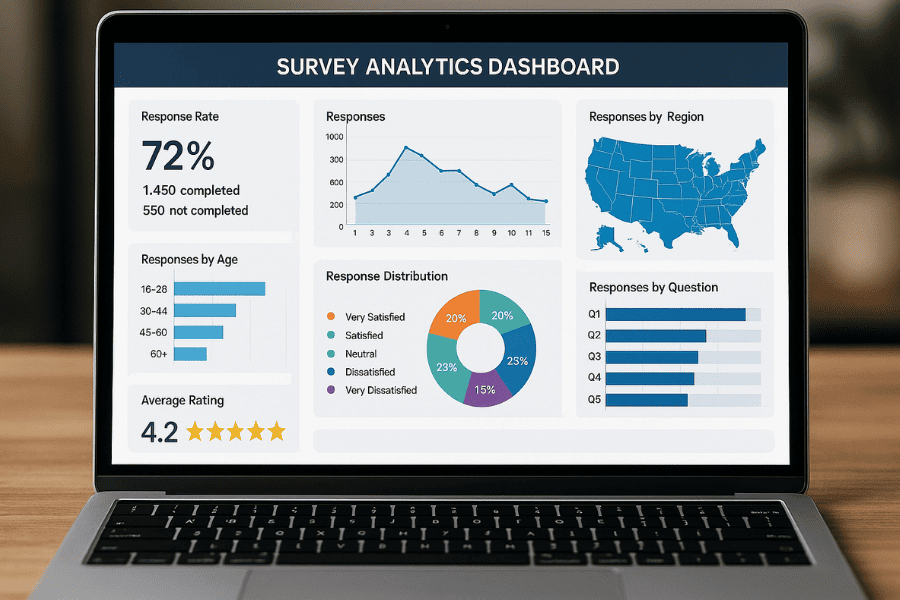10 Ways SaaS Companies Use Surveys to Boost Customer Retention
How SaaS Companies Use Surveys to Improve Customer Retention through feedback loops, churn analysis, and lifecycle strategies.

Introduction
SaaS businesses thrive on one core metric, customer retention. Acquiring a customer is only half the battle; retaining them is where the real growth happens. How SaaS Companies Use Surveys to Improve Customer Retention is not just a strategy but a necessity in the current subscription economy. The beauty of surveys lies in their simplicity and power. When crafted correctly, they give SaaS companies an unfiltered glimpse into the minds of their users. This article breaks down the techniques, tools, timing, and real-world applications of surveys in reducing churn and improving retention.
The Role of Feedback in SaaS Success
Understanding customer pain points is foundational to building a SaaS that retains. Surveys provide that critical line of communication that opens up opportunities for improvement and innovation. But it’s not just about asking questions, it’s about listening with intent and responding with action.
Types of Surveys SaaS Companies Use
Different surveys serve different purposes throughout the customer journey. Here are the key types:
- Onboarding surveys
- Net Promoter Score (NPS)
- Customer Satisfaction (CSAT)
- Feature-specific feedback
- Churn and exit surveys
- Post-support surveys
Each one delivers unique insights when placed at the right stage in the lifecycle.
Timing Matters: When to Send Surveys
Sending a survey at the wrong time can be ineffective or annoying. Strategic timing includes:
- After onboarding is complete
- At renewal or subscription upgrade windows
- Following support interactions
- After key feature usage
- Right before or after a churn event
Creating Effective Survey Questions
SaaS companies must craft questions that are clear, unbiased, and actionable. Avoid leading questions and keep it short, the sweet spot is 5-7 questions. Always include open-ended fields for qualitative feedback.
For a deeper dive into the psychology behind survey responses and how to minimize bias, check out Online Survey Psychology: How to Reduce Bias and Get Honest Responses.
NPS as a Retention Signal
Net Promoter Score surveys are gold for identifying at-risk users. Tracking NPS trends over time reveals shifts in customer sentiment that often precede churn.
Using CSAT to Improve Support Experience
Customer Satisfaction (CSAT) scores post-interaction help identify weak points in your support process. Low CSAT often correlates with lower retention.
Leveraging Exit Surveys to Reduce Churn
Churn exit surveys are critical for understanding why users leave. Use this data to categorize churn reasons:
Surveys as a Part of the Customer Lifecycle
SaaS leaders integrate surveys at every phase, from welcome to goodbye, creating a constant loop of feedback that informs every department.
Personalizing Survey Experiences
Customizing questions based on user role, usage behavior, or tenure boosts completion rates and relevance.
Automating Survey Workflows
Integrations with CRMs, email tools, and in-app modals ensure surveys are delivered on time and results flow back to the right teams.
Analyzing Survey Data for Actionable Insights
Raw data is just the beginning. The magic lies in segmenting, tagging, and comparing data over time to draw conclusions that drive change.
If you want a step-by-step approach to turning survey results into business improvements, see From Survey Data to Actionable Insights: A Step-by-Step Guide.
Visualizing Survey Results for Internal Teams
Dashboards that highlight trends and satisfaction scores motivate cross-functional teams to prioritize retention.
Prioritizing Feedback Themes
It’s impossible to act on every piece of feedback. Grouping responses into themes helps SaaS teams focus on what matters most.
Closing the Feedback Loop
Once changes are made, companies must circle back and tell users, “You said, we did.” This builds trust and loyalty.
Improving Onboarding with Feedback Loops
Onboarding feedback helps teams iterate on first impressions, a known driver of long-term retention.
Encouraging Product-Led Growth through Feedback
When feedback leads to new features, and those features meet unmet needs, users become advocates.
Survey Channels: In-App vs. Email vs. SMS
Each channel has pros and cons. In-app ensures high response rates but can interrupt the experience. Email allows more thoughtful responses. SMS is ideal for quick pulses.
A/B Testing Survey Strategies
Experiment with timing, question phrasing, and channel to identify what works best for your audience.
Predictive Analytics Using Survey Responses
Combining survey data with usage metrics enables predictive churn models that flag high-risk users early.
Segmenting Users Based on Feedback
Surveys reveal user personas based on needs, goals, and satisfaction. This allows for personalized messaging and retention strategies.
Building a Voice of Customer Program
Institutionalizing surveys as part of a broader VoC program helps align marketing, product, and support.
Real-World Example: Slack’s Use of Feedback
Slack famously uses in-app surveys to gauge user happiness and iterates its UX and feature set accordingly.
Common Pitfalls to Avoid in Survey Strategy
Avoiding survey fatigue, unclear questions, and ignoring feedback are among the top mistakes.
Future Trends in SaaS Surveys
AI-generated surveys, predictive sentiment analysis, and voice-based feedback tools are shaping the next evolution of SaaS feedback loops.
How SaaS Companies Use Surveys to Improve Customer Retention
Surveys are far more than just checkboxes. They are conversations. They build bridges between what a company thinks it’s delivering and what the customer actually experiences. SaaS companies that integrate thoughtful, timely, and action-driven surveys into their retention strategy will not only reduce churn but also deepen loyalty, increase lifetime value, and grow through word-of-mouth referrals. In an increasingly competitive digital world, listening to your customers is your biggest edge.
Frequently Asked Questions
Find answers to the most common questions about this topic
Surveys help SaaS companies gather direct insights from users, identify issues early, and tailor strategies to improve the customer experience and retention.
Churn exit surveys are essential as they reveal the specific reasons customers leave, enabling companies to address root causes effectively.
While it depends on the lifecycle stage, quarterly surveys are common, with transactional surveys triggered after support tickets or product milestones.
Popular tools include Typeform, SurveyMonkey, Google Forms, Hotjar, and integrated tools like Intercom and HubSpot.
Yes, when designed well, surveys can reveal behavioral and sentiment trends that precede churn, allowing proactive engagement.
By analyzing the data to segment customers, prioritize feedback themes, implement product or service changes, and close the loop with customers.

Author
Bruma





